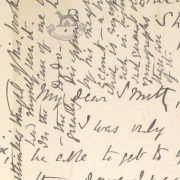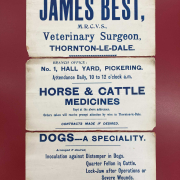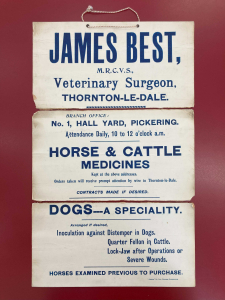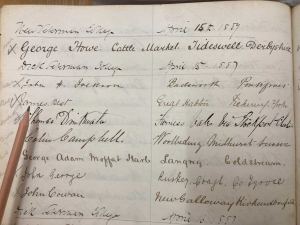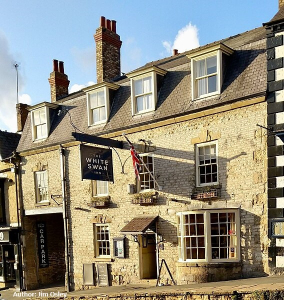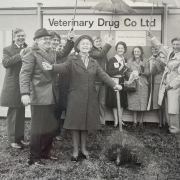4 – Letter to Smith from Richard Crawshay, Melchbourne Vicarage, Sharnbrook, Bedfordshire, 14 Nov 1907
The copyright of this material belongs to descendants of the creator. Images are permitted for reuse under a Creative Commons, Attribution, Non-commercial license.
Click here for full transcript of letter
Letter 4
[FS/3/3/3/4]
Melchbourne Vicarage,
Sharnbrook, S.O.,
Bedfordshire,
14/11/07
[[1]]
My dear Smith,
I was only too sorry no to be able to get to you during the three days I was in London: as almost always with me on these flying visits, I come away without having done many things which I had hoped to do.
I first do as much as I can — normally many things in many ways.
But I am glad to hear from you again: your letters are always comprehending — & sympathetic.
From Read I have heard this morning, & he sends me the enclosed note
[[2]]
of works on the Onas. He says: – “General treatises on anthropology naturally only mention accidental notes on a tribe like the Ona. The enclosed list will give your W. O. friend more to think about & give him the opportunity of ‘reading in Spanish, German & Swedish as well as English & French”
Looking through the references given, I am rather afraid that these after all may disappoint you.
To some you may not be able to obtain & access so readily anywhere as at the anthropological society, above the Z.S. [zoological society], at 3 Hanover square; & to some — Cork’s voyages — perhaps only at the B.M. [British Museum] — atthough I happen to know there is a copy in the Z.S. library.
[[3]]
In any case, I am sure Read will help you all he can & if you are able to make his acquaintance some time at the B.M. there he is “keeper of British & Medieval Antiquities & Ethnography.”
I have been reading your chapter on “Animal Heat” — twice over — with all the intelligence I have at my command; & although of course — I am not [especially] advanced to take in all its detail, I smile — follow you in the main essentials ; & consider your point is proved to all understanding readers of open mind.
It is simply common sense.
Has it occurred to you, to get in the thin edge of your wedge into prejudice by experiment — to convince them by actual demonstration?
Reforms, & departures from old — established usage very often can only be effected in this way
[[4]]
for any good I can do, I will try to strike a parallel with the [horse] in man as illustrated by the Ona. First, however, I may do wisely to consult some leading work on human physiology — Michael Foster’s perhaps — is horrid committing oneself by starting from some wrong premise, although on broad lines what applies to man should apply to the horse. The Onas are extraordinarily hard-lived in their natural state, but die off like this in autumn if clothed & brought to live in buildings. This is an established fact: it is not more hypothesis.
Later I may have the pleasure of seeing you: perhaps a fortnights hence, what I expect be in London again!
About that time, I hope to have a copy of my book for you: binding by hand takes time.
Have you seen any notice of “Lost Birds” by Walter Rothschild?
I enclose the “morning point” review in case not
I rather expected he would be roughly handled,
[[5]]
[Rotated first page]
For I already knew what one of the greatest authorities thought of this book, & had myself seen it.
In the case of one bird — the Dodo – he greatly disappointed me. By his meagre account — a bird which is so especially rich in history: such quaint old monographs as there are of it.
Yours most sincerely
Richard Crawshay [signature]
Please note that work on this transcript is ongoing. Users are advised to study electronic image(s) of this document where possible.

